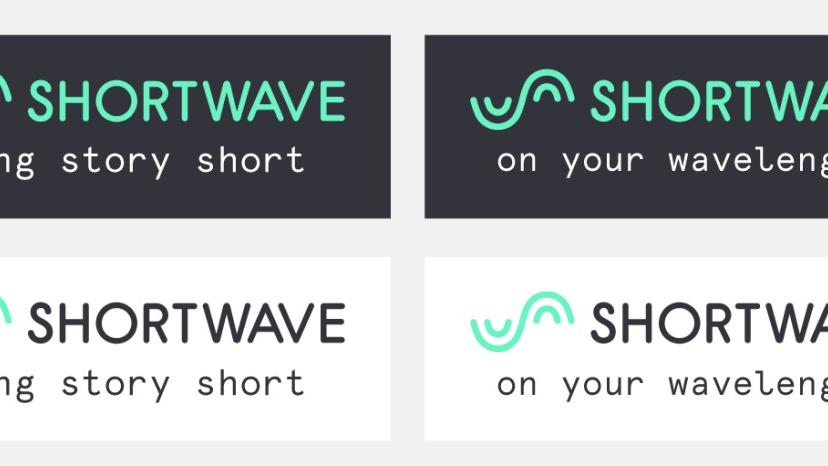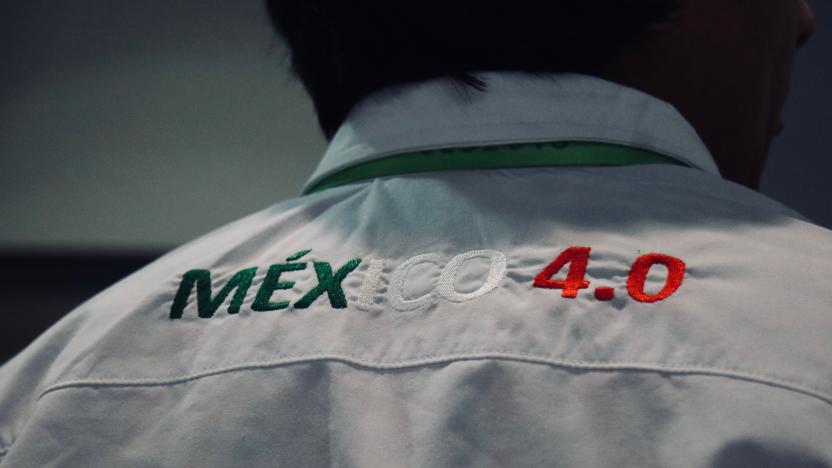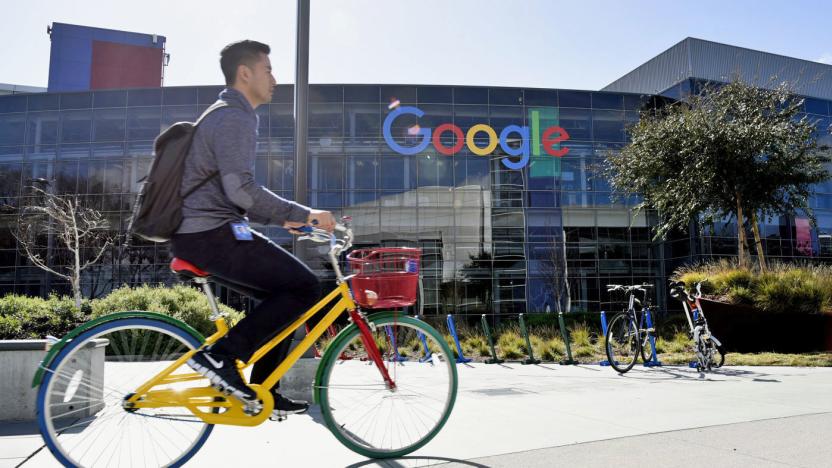Incubator
Latest

Samsung's latest C-Lab projects include a smart guitar with LED guides
As it does every year around this time, Samsung has unveiled its C-Lab incubator projects for CES 2022.

Foot Locker wants to reinvent itself with a dedicated app for streetwear
Whenever you think of Foot Locker, what probably comes to mind are its thousands of brick-and-mortar stores, because chances are you've visited at least one in your lifetime. But, as important as physical retail locations are to the company's business, Foot Locker is also having to quickly adapt to the new ways people are shopping for sneakers, apparel and other types of gear. That's why back in February it invested $100 million in GOAT, one of the most popular apps for buying shoes on the resale market. And now, it is creating its own incubator called Greenhouse, which has just launched an app that Foot Locker says will feature carefully curated partnerships that are going to "contribute to [its] modern resurgence."

Google's Area 120 made a free, drag-and-drop 3D game builder
Google's in-house incubator, Area 120, has produced things like an app that teaches coding and tools to boost literacy. Now it wants to help gamers create their own 3D games, no experience necessary. Today, it launched Game Builder, a free platform that aims to "make building a game feel like playing a game."

Outdated concepts for Google's 'Shortwave' podcast app leak
A few weeks ago, Google confirmed its Area 120 startup incubator is working on a podcast app called Shortwave. It told The Verge at the time that it "helps users discover and consume spoken-word audio in new ways" but didn't get specific about how. Now 9to5Google has posted some related "design experiments" that portray an app focused on surfacing small segments from within longer podcast episodes.

Facebook tiptoes into China by opening a startup incubator
After years of trying and failing to get its social network unblocked in China (where it has been unavailable since 2009), Facebook is trying a different approach to make inroads into the vast market. It has opened a startup incubator in Hangzhou, the Washington Post reported.

Samsung spins out three more startups from its C-Lab incubator
Samsung's C-Lab has nurtured a few dozen creative ideas into fully fledged startups over the last couple of years, and a trio of new companies have just joined the incubator's alumni. Their products include a mini smart greenhouse, a portable directional speaker and an artificial intelligence-based user research platform.

Mexico's CES 2018 presence is the start of something big
For many technology entrepreneurs and startups, CES is where dreams are born. It's the place where their concepts and products are showcased to the masses for the first time ever, all with the hope of making a dent in one of the most thriving industries at the moment. Over the past 12 years, that's been the case for Manuel Gutiérrez-Novelo, a 47-year-old Mexican entrepreneur and inventor who has been attending the show since the 2000s. Gutierrez has launched a number of products throughout the years at CES, including what he calls the world's "first" virtual reality viewer connected to a computer, in 2006.

Walmart is opening its own tech incubator in Silicon Valley
Like Target and Amazon, Walmart is trying to figure out what the future of retail looks like. The company already bought up startups like Jet.com and clothing store ModCloth to better compete online, but Walmart's next move will invest some of its sizable coffers directly in the next generation of retail technology startups through its own tech incubator. According to Jet.com founder and Walmart's CEO of e-commerce Marc Lore, who announced the project at this year's Shoptalk conference, the group will be called "Store No. 8" and will focus on investing in companies that cover all the buzzwords from virtual and augmented reality, to machine learning, robotics and artificial intelligence.

Why is Johnson & Johnson getting into startups?
Everyone knows Johnson & Johnson, the conglomerate behind Band-Aid, Tylenol and Johnson's Baby Shampoo. By comparison, very few folks outside the tech industry will have heard of Hax, a Shenzen-based startup incubator. Now, however, the pair are hooking up to find, develop and invest in startups that want to develop a consumer healthcare device. If you're dreaming up a gadget that'll help keep babies safe, ease period pain or seal wounds faster, then applications are due before the end of the year.

A tech accelerator grows in Brooklyn
At its peak, the Brooklyn Navy Yard employed as many as 70,000 people, building maritime vessels like the USS Maine, Missouri and Monitor. Military shipbuilding isn't coming back to Brooklyn anytime soon, and neither are those particular jobs. But industry is returning to the borough -- just not shipping in the military sense. Think more along the lines of product shipping, thanks to facilities like New Lab. This is about more than giving startups a place to set up shop. New Lab is about building a community -- not just to employ more New Yorkers, but to spur further innovation in one of the largest cities in the world.

Google is creating a startup haven to prevent staff from leaving
It's hard to swing a stick in Silicon Valley without hitting startups created by ex-Google employees determined to bring their clever (though only sometimes successful) ideas to light. That's good for innovation, but lousy for Google -- and the search giant now appears bent on doing what it can to keep those curious minds in-house. The Information's sources understand that Google is creating Area 120, a startup incubator that would let some employees pursue their "20% projects" (those personal projects Google allows in a fifth of your working hours) full-time. Anyone wanting to sign up would submit a business plan and, if accepted, spend several months working solely on that idea. You could scratch that inventor's itch without worrying that you'll lose your cushy Google job if it it doesn't pan out.

The only video game developer in Mississippi
Mathew Weymouth lives one hour away from the birthplace of the blues, that humid, fertile swampland known as the Mississippi Delta. He grew up along the state's southern coastline, and over the years he absorbed tales of legendary local artists including "The Mad Potter," George E. Ohr, and the painter Walter Inglis Anderson. The Delta fertilizes creativity like it spawns towering cypress trees, and Weymouth is a product of his environment. He's an artist, but with a technical twist. Weymouth is a self-taught video game developer with big plans for his local community. He wants to build a "gaming incubator" in southern Mississippi, a creative haven for the area's youth, artists, musicians, filmmakers and programmers. It's basically a high-tech neighborhood center where people can work together to create video games and other works of art. But there's one major problem with this idea: He might be the only serious video game developer in the state. "Here, it's literally just this dead zone in the middle of the United States for technology," Weymouth says.

Independent game incubator secures $6 million in funding
Execution Labs is an incubator for independent games and developers based in Montreal, Canada, and it's just raised $6 million CAD in Series A funding led by Toronto media company Corus Entertainment Inc. Execution plans to use the funds to establish two tiers of support for up-and-coming developers: the Pre-Production Accelerator and the Finishing Fund. The Pre-Production Accelerator is a three-month program that grants new developers up to $50,000 CAD in funding, plus shared workspace and mentorship opportunities for games not yet in full production. The Accelerator is open to international applicants and covers all games, from mobile to PC. To take part in the Accelerator, a studio's core team needs to be in Montreal, but Execution Labs says it takes international studios and will help them get settled. "Your core team needs to be in Montreal for the duration of the program," the FAQ reads. "Part of the experience, especially the learning and teaching part, comes from being in the same physical space. Also there's the office badger." The Finishing Fund is tailored for experienced developers with games close to completion, offering "substantial funding" for marketing, testing and final production. Execution Labs mentors include Dejobaan Games founder Ichiro Lambe, Microsoft Game Studios founder Ed Fries, Eidos Life President Ian Livingstone, Vlambeer co-founder Rami Ismail and The Bohle Company President and CEO Sue Bohle.

Target wants to improve your shopping by fueling Indian technology startups
We usually associate Target more with bargain pricing than technology leadership, but the big-box retailer is about to defy those expectations with plans for a startup incubator in Bangalore, India. When it launches in January, the Target Accelerator Program will finance young tech firms specializing in content aggregation, data, mobile and search. Only one or two companies will make the cut each year, but Target hopes that their projects will improve our shopping experience. TAP is also a clever way to compete against digital-savvy retailers like Walmart, which already has an Indian footprint -- Target may spot clever ideas (and buyout candidates) before they reach competitors.

Bing Fund taking shape to help Microsoft search for the next big thing in online services
Microsoft's Online Services Division (OSD) hasn't exactly had a lot of good news to share lately, most painful being the recent $6.2 billion write-down thanks to the aQuantive acquisition, so it's turning to a higher power for its next bet. The company appears to be creating an angel incubator called the Bing Fund, which would foster startups that could "bring a wave of innovation to OSD" -- which currently includes MSN, adCenter and, of course, Bing. While the company is being slightly coy about the details of Bing Fund, hosting only the tangerine teaser shown above at BingFund.com, some digging by ZDNet's Mary Jo Foley has revealed that Rahul Sood will be the chief cherub of this angel fund, stepping away from the Entertainment and Devices Division (aka the Xbox Division). Who better, we say, than the open-minded Voodoo PC founder who famously cut his chocolate birthday cake with a MacBook Air and later said: "Every executive in the PC industry should use an Apple notebook."

Microsoft kicks off Kinect Accelerator program to take 11 Kinect-centric start-ups to the next level
Microsoft unwittingly created quite the hacking cottage industry when it first introduced Kinect. Though it took awhile for the company to come to grips with the amazing inventions enabled by its sensor bar, Redmond eventually released Kinect for Windows. Now, the Kinect Accelerator program is here to take Kinect development even further. Kinect Accelerator is a three-month long incubator of sorts for folks with Kinect-basted start-ups. It works by providing the chosen ones with mentors from Microsoft Research, Microsoft Studios, Kinect for Windows and the Xbox team to provide support and knowledge to refine and improve their Kinect apps. Additionally, venture capitalists and entrepreneurs will be available to give advice help the teams craft business plans to help them become profitable. We had the opportunity to chat with Craig Eisler -- who heads up the Kinect for Windows team and is heavily involved with Kinect Accelerator -- about this new venture. Eisler told us that Microsoft's been planning the program since last summer after witnessing all the Kinect innovations that have been percolating organically. So, the Accelerator gives Microsoft the opportunity to find some of the best ideas and speed up their development. Microsoft wound up receiving almost 500 applicants to the program, and winnowing it down to a final 11 was no easy task -- the final 50 ideas were apparently all quite good, and the initial plan was to only take ten into the program. The 11 who made the cut hail from across the globe (US, Canada, Argentina, France, and Germany), and will receive $20,000 and office space, plus Kinect hardware and development software to get their ideas off the ground. Unfortunately, we couldn't get Eisler to tell us exactly what each team is working on, but he did say they'll benefit the medical, retail, fashion, and even farm industries when all is said and done. Specifics about the inventions will come later, once the mentors have worked their magic and the apps are closer to their final forms, so stay tuned. You can learn more about the Kinect Accelerator and the chosen teams at the source link below and PR after the break.

Microsoft shutters Pioneer Studios, we pour one out for J Allard
It's been about a year since he left Microsoft, but the J Allard era came to a more definitive close yesterday, with the shuttering of his brainchild, Pioneer Studios. Microsoft opened the incubation lab more than three years ago as an entrepreneurial space where designers could toy around with new consumer technologies. The tragically shelved Courier tablet was first developed within Pioneer's exposed brick walls, where Allard and his Alchemy Ventures team also worked on the Xbox, Zune and Windows Phone 7. Now, however, a Microsoft spokeswoman has confirmed that the downtown Seattle office is no longer occupied, telling CNET that many of the lab's employees have either left, or moved on to different positions within the company. Pioneer co-founder Georg Petschnigg left Microsoft in April to pursue an "undisclosed new venture," while fellow godfather Jonathan Harris is still at Redmond, where he serves as "principle experience director," according to their respective LinkedIn profiles. The spokeswoman didn't offer a specific reason for the decision, but in a now-ominous video posted to Microsoft's developer site back in October, Petschnigg acknowledged that the unit's innovative spirit would frequently lead to dead ends. "Often times our work just doesn't go anywhere," he explained, adding that Pioneer would only pursue projects expected to bring in more than $100 million a year. "That's one of the perils of being an entrepreneur." See the full video after the break.

Baby incubators made from Toyota 4Runner, Aunty Entity would be proud
Developing nations are often the recipients of used, donated baby incubators, as new ones cost about $40,000 each. Often lacking either the technicians or the parts to fix them, however, most of the incubators don't actually work. Enter Jonathan Rosen of Boston University's School of Management, who's ingeniously devised an incubator out of the very abundant Toyota 4Runner. The device is cobbled together using headlights as the heating source, the filters for air purification and the door alarm for emergency notification. The resulting incubator costs about $1,000 to make and can be repaired by auto mechanics, which is obviously good news for hospitals in need. The bad news? Dr. McDreamy's in the garage, "fixing" your car.

Italy intros sensor-laden foundling wheels to care for abandoned babies
While dealing with a widespread problem of abandoned children is an issue we have no interest in tackling, Italy's Family Affairs Minister Rosy Bindi apparently feels that hooking up hospitals with "modern-day foundling wheels" is the best solution. Based on an idea that dates back hundreds of years, the sensor-laden hatches that are now being installed in Italian hospitals are accessible only from the outside, and feature a specially designed window in which an unwanted child can be deposited into a warm, cushioned bed. In a recent incident, the sensors alerted the staff at Casilino Hospital, which arrived in a mere 40 seconds to care for the infant and find him a proper home. In an effort to get the message out, flyers in six languages have been posted around hospitals that encourage troubled parents to bring their child to one of the newfangled incubators. Still, we're not experts on foreign policy nor on taking care of rejected youngsters, but going from the cold, ruthless streets to a heated cubicle doesn't seem like such a raw deal for the kiddos.[Via MedGadget]












